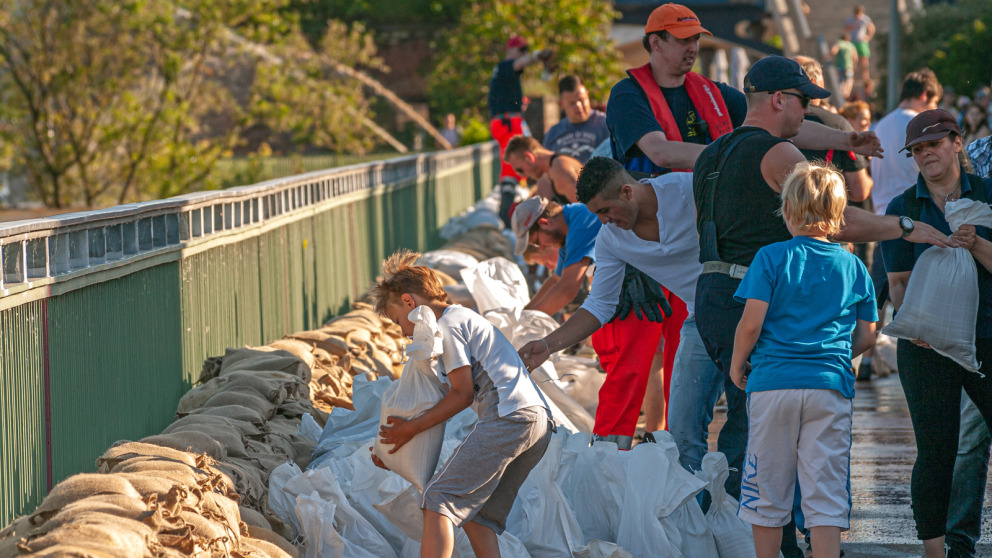Disaster Resilience for Extreme Climate Events (DIRECTED)
Duration

The recent droughts and unprecedented floods in central Europe have disclosed our vulnerability to extreme weather events. Besides climate change as a driver of more frequent and intensifying weather extremes, demographic change and socio-economic development exacerbate severe impacts. The project "Disaster Resilience for Extreme Climate Events" (DIRECTED) aspires to foster disaster-resilient European societies with improved risk governance.
International frameworks for disaster risk reduction and climate change adaptation, such as the SENDAI framework and the EU Strategy on adaptation to climate change, acknowledge the critical need for integrating risk governance, communication and operational mechanisms for coping with extreme climate events throughout the entire Disaster Risk Management cycle. The DIRECTED project aims to expanding our capabilities to communicate, utilise and exchange state-of-the-art data, information and knowledge between different actors, to boost the integration, accessibility and interoperability of models, to facilitate knowledge sharing, to improve dialogue and cooperation encompassing all levels of actors based on enhanced community engagement and to develop new governance and risk management strategies using a bottom-up, value-driven co-development approach.
Key to these goals will be the establishment of the DATA-FABRIC, an innovative, governed, cloud platform that enables secure and flexible discovery and sharing of all structured and unstructured data. The researchers will establish four Real World Labs that co-develop new governance, interoperability and knowledge production frameworks. They will transform data and models into customised workflows for creating actionable solutions. The Real World Labs ensure that the project continuously and actively involves key stakeholders in the co-development process and address topical problems of multi-hazard risk management and climate change adaptation to maximise impacts.
RIFS will lead one of five work packages. The researchers will establish and manage the four Real World Labs across Europe, facilitate the implementation of the transdisciplinary co-production cycle and evaluate the outcome of the labs.


